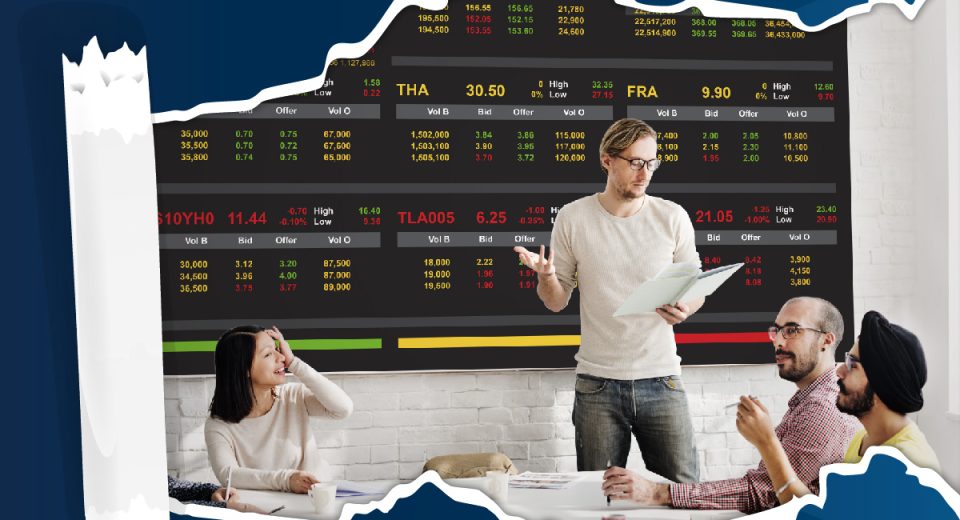By the end of 2017, Bitcoin was shadowing the mighty US dollar. It was seen that as the value of US dollar surged in relation to other currencies, the value of Bitcoin also surged in pursuit. And, as dollar strength diminished, traders seemed to pull back from Bitcoin as well, leading to a decline in the cryptocurrency’s price.
This correlation was surprising, given that the two currencies are rivals. Bitcoin, by its very nature, is based on the idea of doing away with the need for fiat currencies. The US dollar, on the other hand, is the largest fiat currency reserve for the world. However, the correlation did prove that forecasts for the US dollar were important in determining the direction of Bitcoin price.
Factors that Drive the USD and Impact USD-Bitcoin Trading
- Inflation and Interest Rates: Decisions by the Federal Reserve, regarding US monetary policy, influences the performance of the dollar. A higher interest rate usually signals a stable and growing economy. Traders look for announcements by the Fed to better understand where the USD is headed.
- Supply versus Demand: If US exports are higher than imports, demand for the dollar rises, as consumer countries have to pay in USD. The US government and large American corporations issue bonds to raise capital, which are paid in dollars by foreign investors, which again increases dollar value. The dollar is considered a safe haven during times of global economic uncertainties. Therefore, demand for the dollar persists despite fluctuating economic performance.
- Unemployment Rates: The Non-Farm Payroll (NFP) report is awaited by traders because higher unemployment levels and concomitant weakening in consumption would mean that the economy is slowing down. The US government will then have to resort to selling off bonds and stocks to revive the economy. These bonds and stock are bought by foreign investors in their own local currencies. So, the value of the dollar diminishes. The NFP reports are a key economic indicator for the USA.
- Political Influences: There is a special relationship between the US economy and the President of the United States. International investors like to see a strong leader, who has his or her agenda clear, especially regarding economic growth. The US elections are, therefore, a time of great volatility for the dollar.
- Tax Cuts: Tax cuts fuel consumer spending, leading to diminishing tax deficits, which is good for the currency. When taxes are raised, personal spending is reduced but government spending increases a great deal.
- Wars and Geo-Political Events: The US has a history of getting involved in wars across the world and being a target for terrorist activity. All this has an effect on the overall dollar value.
Trading Bitcoin is Different from Investing in it
Investing in Bitcoin is a long-term strategy, done with many goals in the picture, such as fiat risk hedging, business objectives or simply portfolio diversification. Investors are not concerned about short-term price fluctuations and rarely exit the market.
Trading, on the other hand, takes place on shorter timeframes, many a times not more than a few hours. Traders are extremely price sensitive and are constantly on the lookout for the perfect entry and exit positions. Some of the advantages of trading Bitcoins include:
- High Volatility: The Bitcoin market is hugely volatile, allowing higher percentage of profits with minimal leverage. The continuous price movements allow traders to make quick profits from the price differences. The strategy is risky though, which is why applying efficient risk management techniques is essential.
- Cheap and Easy Transactions: Deposits and withdrawals of Bitcoins can be accomplished within hours, if not minutes, from anywhere in the world. Compared to the traditional exchanges, here the exchange fee is also low.
- Trading at All Hours: It is a 24/7 market, unlike others that usually remain close on the weekends. The requirements for trading are not as stringent as that for the forex market. However, the exchanges have been prone to hacking in the recent past. So, it is always recommended to trade only with a regulated broker or exchange.
CFDs are ideal for speculating on Bitcoin prices, without ever needing to own the currency. CFDs also provide a range of other markets like futures and commodities to trade in.





